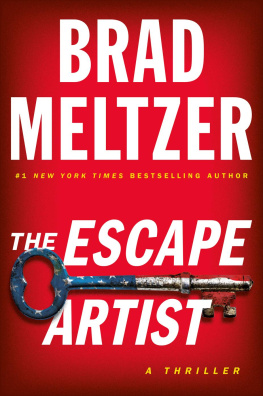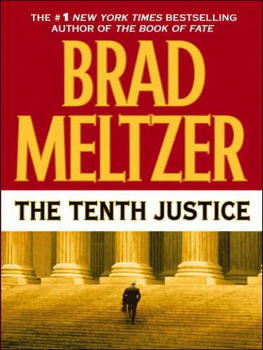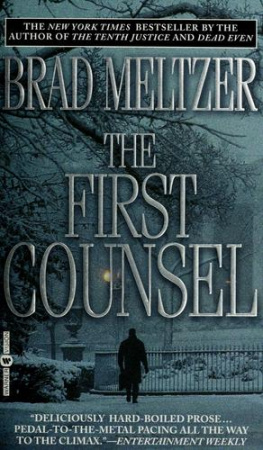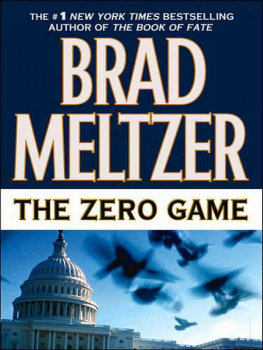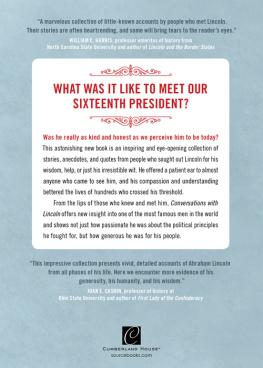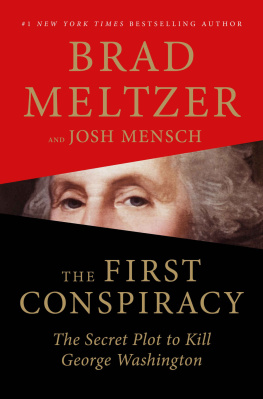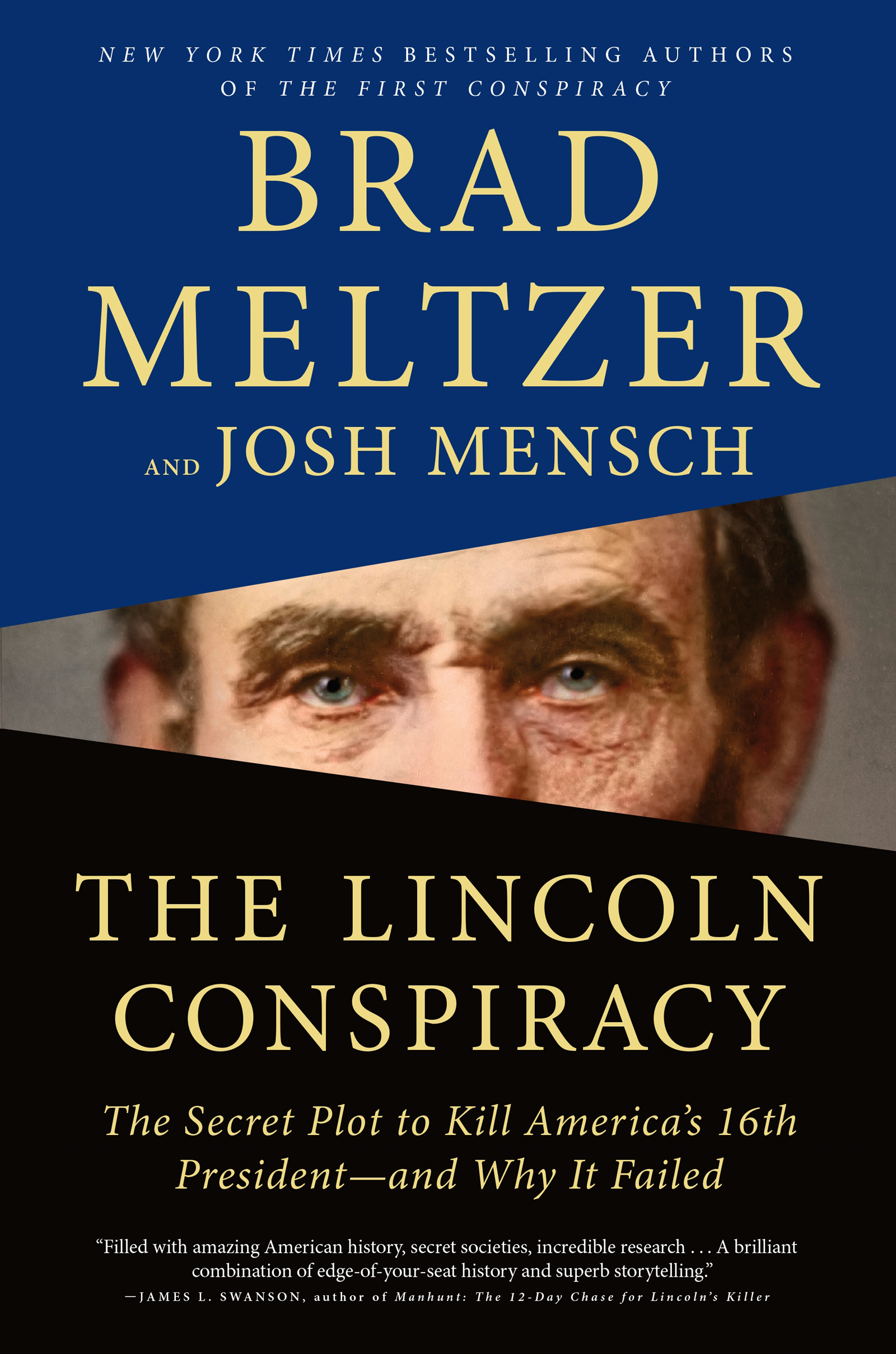When quoting directly from nineteenth-century sources, weve sometimes updated the original spelling, capitalization, or punctuation to make the language accessible to modern readers. The wording itself is not changed, unless otherwise indicated in the text or endnotes.
If they kill me, I shall never die another death.
Cecil County, Maryland
February 23, 1861
Theres a secret on this train.
In the northeastern corner of Maryland, roughly ten miles south of the Pennsylvania state line and five miles west of Delaware, it travels through the darkness.
The land here is mostly rural, a mix of flat farmland and rolling hills. Its after midnight, and the cold night air is silent except for the sound of the engine and wheels.
By outward appearance, theres nothing unusual about this train: a steam engine, tender, cargo car, and several passenger cars moving swiftly along the rails. Inside, theres also nothing out of the ordinary. The passenger cars are dotted with travelers, most with closed eyes. In the rear sleeper car, a handful of passengers occupy the berths on either side of the aisle. By appearances, theyre also relatively typical: two middle-aged businessmen, a young woman, and her invalid brother.
Yet much about this seemingly ordinary train is not as it seems.
Before its departure from Philadelphia a few hours earlier, the railroads staff received special instructions to delay the trains journey until a mysterious package could be delivered to it, transported aboard under strict secrecy. The package remains tightly sealed, supposedly containing government documents of urgent importance. In fact, the box contains something else entirely. None of the trains staff knows this. Only one passenger on the train is aware of the packages true contents.
In the sleeper car, the two middle-aged businessmen, sitting on different berths, are not who theyd claimed to be when they handed tickets to the conductor. The names written on their tickets are not real. One of the men, with wide girth and thick whiskers, carries hidden underneath his coat two loaded pistols, a loaded revolver, and two sharpened bowie knives. The other businessman, who is short and well built with a close-shaven beard and piercing eyes, silently gazes around the interior of the car, studying every person and movement carefully. Every several minutes, he stands up and walks to the rear platform, where he stares intently into the passing darkness like hes searching for a secret signal.
Across the aisle in the sleeper car from the businessmen, the young woman is also not who she seems. The name on her ticket is actually her code name; she must conceal her true identity under all circumstances, for shes an undercover agent, aboard this train as part of a secret mission.
Yet the most unusual passenger is the young womans invalid brother, with whom she boarded in Philadelphia. When he first entered the passenger car and she guided him to his seat, he pulled the brim of his low felt hat down over his face so that no one could see it. He wore a loose overcoat over his shoulders, concealing his clothes and torso. Now, he lies behind a curtain in one of the sleeper berths, hidden from view. Because of his unusual height, he cannot stretch out his legs, so he keeps them bent.
This man is not, in fact, an invalid. Nor is he the young womans brother. His low felt hat and overcoat are simply a disguise so that no one on the train will recognize him.
The engineer, conductor, staff, and other passengers have no idea hes aboard. But there he ishiding in their midst.
His real name? Abraham Lincoln. President-elect of the United States.
In only nine days, a crowd of tens of thousands will gather in the nations capital, preparing to witness Lincolns first inauguration as President. When hes up on that platform, his every word and gesture will be observed and recorded by reporters for newspapers from every city in the country. He enters the office at a time of great peril, with a growing threat of war that could destroy the nation. Not since the founding of these United States has an incoming President been so deeply scrutinized or faced with such momentous pressure. The world is tracking his every move.
Tonight, however, he is vulnerable and nearly alone.
Tonight, his life is in danger.
And tonight, the President-elect is the target of a sinister plot calling for his murder.
This scheme, hatched by conspirators in secret rooms and underground saloons in the city of Baltimore, will try something never before attempted in the history of the country at the time: the assassination of the man elected President of the United States. If successful, they will accomplish something never accomplished since: the murder of an incoming President before taking office.
This is the story of an early conspiracy to kill Abraham Lincolnbefore he served a single day as President, and on the eve of the terrible war that would define his place in history. It is a story that is not well-known by most people today. Even now, some aspects of the scheme remain mysterious. Yet this story and its strange plot, in its motives and conception, provides a gripping window into the most seismic events of the day, at a moment of great national turmoil. Its the story of a new leader, thrust from near obscurity into a position that will bring the most crushing responsibilities in our history. Its the story of a moral crisis in America so profound our nation was almost destroyed by itand its aftermath is still being grappled with today.
On this dark night, on this dark train, more than just the life and future of a President is at risk. This is about the destiny of a country. Forget the fate of Abraham Lincolnthis is about the fates of four million enslaved men, women, and children now held in bondage, and whose best hope for liberty may be aboard this train.
From this moment, just after midnight, as the steam engine and passenger cars move through the darkness, the plot to kill President-elect Abraham Lincoln is set to trigger within a matter of hours.
The nations future is at stake.
Spencer County, Indiana
January 20, 1828
Young Abraham Lincoln is freezing.
In an isolated rural region near Little Pigeon Creek in Spencer County, Indiana, hes outside, laboring in the cold.
Although only eighteen years old, hes already over six foot twoand despite this unusual height, he weighs only about 160 pounds, stretched thin and wiry on a tall frame. His long arms are skinny but strong; his calloused hands wield tools with assurance, including a long swinging ax. On this winter day, he probably wears a rough buckskin coat over his threadbare clothes, and a hat of raccoon fur over his coarse black hair. The trees surrounding this clearing are mostly without leaves, and the ground is hard from frost.


